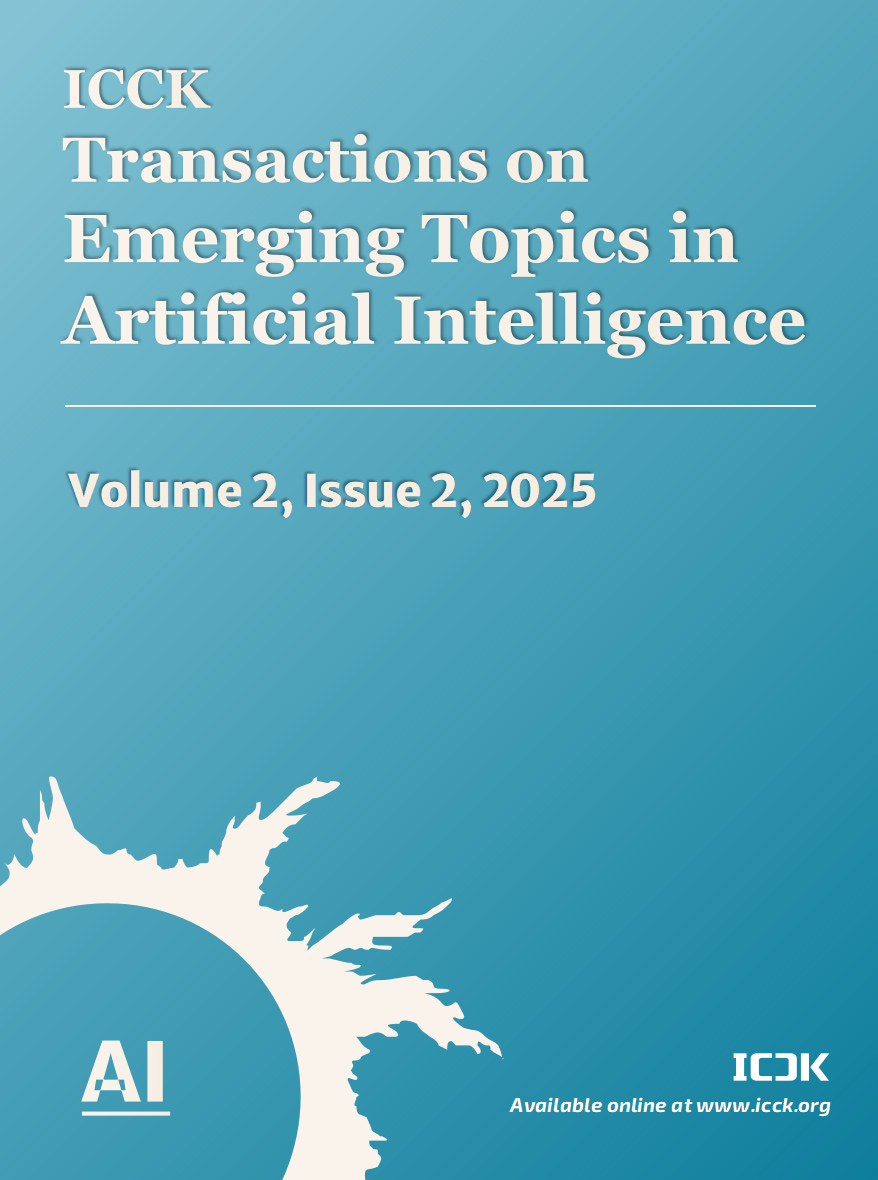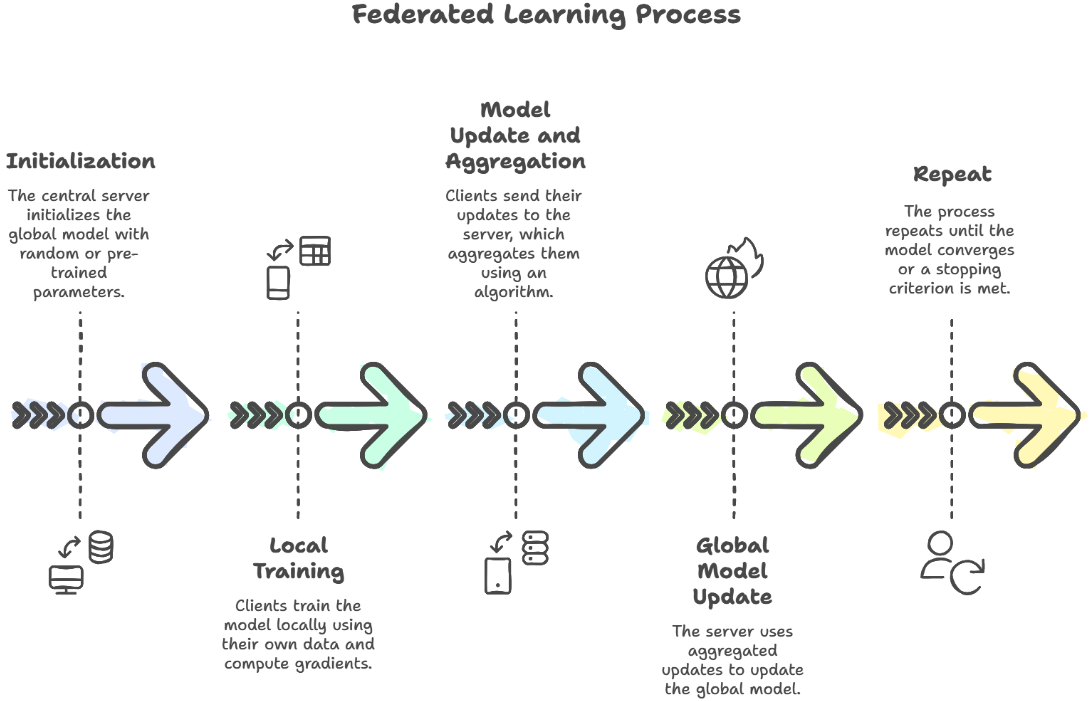Abstract
Federated Learning (FL) which eliminates the centralized data storage requirement by facilitating model training on diverse edge devices is now a promising paradigm for decentralized machine learning (ML). Applications involving privacy-preserving Artificial Intelligence (AI), including wearable technology, IoT networks, and smart healthcare appliances, can particularly benefit from this solution in embedded systems. By using on-device local data from devices such as sensors, embedded controllers, and smartphones, FL keeps confidential information local, minimizing the data transfer cost and privacy risks. Potentiality, challenges, and key applications of FL integration with embedded systems are addressed in this paper. Device-to-device efficient communication, model updating, and trade-offs between model accuracy and computational resource limitations are some of the issues addressed. Also addressed in the paper are model aggregation, federated optimization methods, and their usage in edge-based AI in real-life applications. Problems with security, system reliability, and heterogeneous data in federated environments are also discussed in the paper. The extensive use of FL in embedded systems is one of the important developments in edge AI solution designing that is more scalable, secure, and privacy-conscious.
Keywords
federated learning
embedded systems
artificial intelligence
edge computing
privacy-preserving internet of things
machine learning at the edge
data privacy
decentralized machine learning
Data Availability Statement
Not applicable.
Funding
This work was supported without any funding.
Conflicts of Interest
The authors declare no conflicts of interest.
Ethical Approval and Consent to Participate
Not applicable.
Cite This Article
APA Style
Radhakrishnan, K., Ramakrishnan, D., & Freeda, R. A. (2025). Federated Learning for Artificial Intelligence in Embedded Systems. ICCK Transactions on Emerging Topics in Artificial Intelligence, 2(2), 91–115. https://doi.org/10.62762/TETAI.2025.440076
Publisher's Note
ICCK stays neutral with regard to jurisdictional claims in published maps and institutional affiliations.
Rights and Permissions

Copyright © 2025 by the Author(s). Published by Institute of Central Computation and Knowledge. This article is an open access article distributed under the terms and conditions of the Creative Commons Attribution (CC BY) license (
https://creativecommons.org/licenses/by/4.0/), which permits use, sharing, adaptation, distribution and reproduction in any medium or format, as long as you give appropriate credit to the original author(s) and the source, provide a link to the Creative Commons licence, and indicate if changes were made.


 Submit Manuscript
Edit a Special Issue
Submit Manuscript
Edit a Special Issue

 Copyright © 2025 by the Author(s). Published by Institute of Central Computation and Knowledge. This article is an open access article distributed under the terms and conditions of the Creative Commons Attribution (CC BY) license (https://creativecommons.org/licenses/by/4.0/), which permits use, sharing, adaptation, distribution and reproduction in any medium or format, as long as you give appropriate credit to the original author(s) and the source, provide a link to the Creative Commons licence, and indicate if changes were made.
Copyright © 2025 by the Author(s). Published by Institute of Central Computation and Knowledge. This article is an open access article distributed under the terms and conditions of the Creative Commons Attribution (CC BY) license (https://creativecommons.org/licenses/by/4.0/), which permits use, sharing, adaptation, distribution and reproduction in any medium or format, as long as you give appropriate credit to the original author(s) and the source, provide a link to the Creative Commons licence, and indicate if changes were made. 